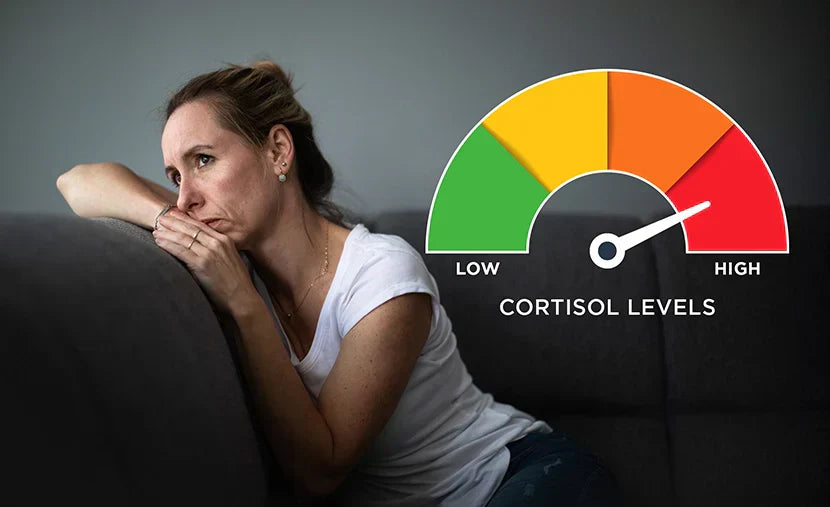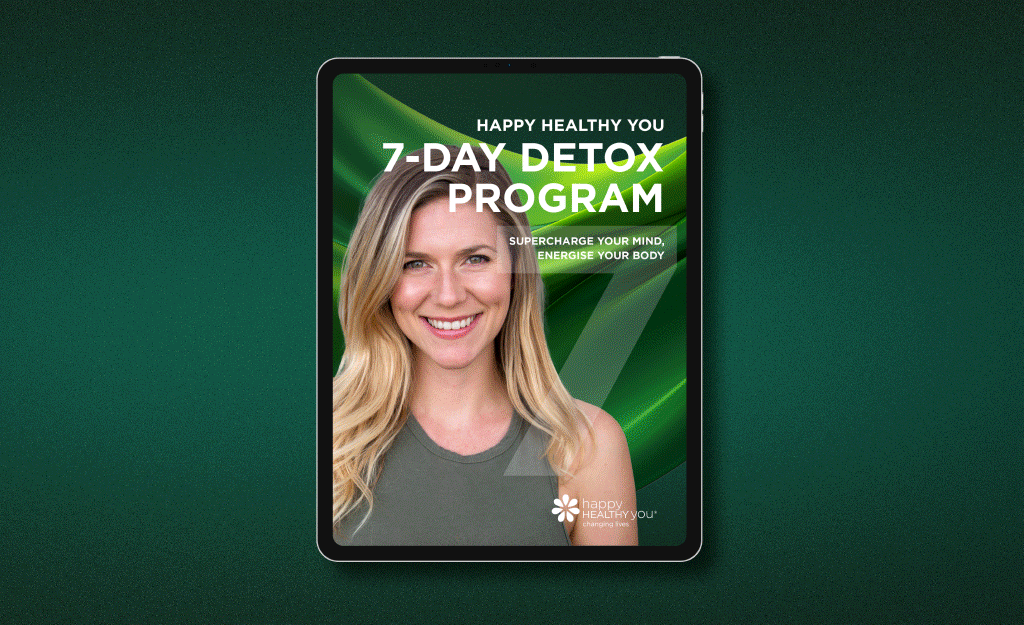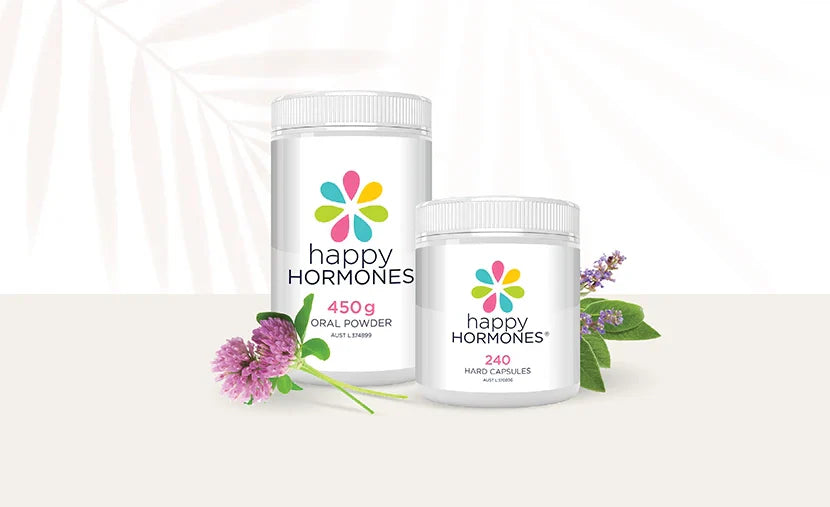Reducing Anxiety Naturally by Reducing Cortisol Levels
By Jeff Butterworth

Anxiety disorders are a significant concern in Australia, affecting approximately one-third of the population at some point in their lives—a statistic that continues to rise. A key factor contributing to this increase is elevated cortisol levels.
Understanding Cortisol and Its Role in Anxiety
Cortisol, commonly known as the "stress hormone," is produced by the adrenal glands and plays a vital role in the body's response to stress. It helps regulate various functions, including metabolism, inflammation, and the sleep-wake cycle. However, when cortisol levels remain elevated over extended periods, they can adversely affect mental health, particularly by triggering or exacerbating anxiety.
Several factors can lead to sustained high cortisol levels:
· Chronic Stress: Continuous exposure to stressors keeps the body's stress response active, leading to consistently high cortisol production.
· Poor Sleep: Lack of quality sleep disrupts the body's natural cortisol rhythm, often resulting in elevated levels.
· Inflammation: Chronic inflammation prompts the release of cortisol as the body attempts to manage the inflammatory response.
· Insulin Resistance: This condition can cause fluctuations in blood sugar levels, prompting increased cortisol production to maintain balance.
· Hormonal Imbalances: Elevated cortisol can disrupt the balance of other hormones, further contributing to anxiety symptoms.
Natural Strategies to Manage Anxiety by Regulating Cortisol Levels
To address anxiety linked to high cortisol, consider the following natural approaches:
1. Meditation: Regular meditation practices help quiet the mind and calm the nervous system, reducing stress and lowering cortisol levels.
2. Breathwork: Techniques that focus on controlled breathing can significantly impact anxiety management by slowing the breath and calming the nervous system.
3. Yoga: Combining physical postures with breath control and meditation, yoga is an effective practice for reducing anxiety and balancing cortisol levels.
4. Exercise: Engaging in regular physical activity helps dissipate nervous tension, induces a calmer state, and releases endorphins, which are natural mood enhancers.
5. Cold Exposure: Practices like cold showers or cold plunges can calm the nervous system and reduce anxiety. It's advisable to begin under the guidance of an experienced individual.
6. Limit Stimulants: Reducing intake of caffeine, alcohol, and screen time can help lower cortisol levels. Instead, spend time outdoors and connect with nature to promote relaxation.
7. Support with Supplements: Certain supplements can aid in reducing cortisol levels and managing anxiety. For instance, products like Happy CALM, MSP, and Happy Hormones are designed to support hormonal balance and promote relaxation.
Happy Calm
Happy Calm is formulated with a blend of herbs, vitamins, and minerals aimed at supporting the nervous system and promoting relaxation. Key ingredients include:
· Passionflower (Passiflora incarnata): Traditionally used in Western herbal medicine to alleviate sleeplessness, mild anxiety, irritability, and nervous tension.
· Rhodiola (Rhodiola rosea): An adaptogen that helps the body adapt to stress and supports mental function.
· Withania (Withania somnifera), also known as Ashwagandha: Traditionally used to relieve symptoms of stress and mild anxiety.
· Vitamin B6: Maintains nervous system health and function.
· Vitamin B5 (Calcium Pantothenate): Supports energy production.
These components work synergistically to calm the nervous system, reduce cortisol levels, and alleviate anxiety symptoms.

MSP (Magnesium Super Potent)
MSP is a supplement that combines magnesium with anti-inflammatory herbs to support relaxation and reduce stress-related symptoms. Key aspects include:
· Magnesium Glycinate: A highly bioavailable form of magnesium that supports muscle relaxation, improves sleep quality, and reduces anxiety.
· Boswellia and Turmeric: Herbs known for their anti-inflammatory properties, which can help reduce systemic inflammation—a factor that can elevate cortisol levels.
By addressing magnesium deficiency and inflammation, MSP aids in calming the nervous system and managing anxiety.
Happy Hormones
Happy Hormones is designed to balance hormonal fluctuations that can impact mood and stress levels. While specific ingredients are not detailed here, the formulation aims to regulate hormones that influence cortisol production, thereby assisting in anxiety management.
Summary
Incorporating these supplements into a daily routine, alongside practices such as meditation, exercise, and proper sleep hygiene, can provide a comprehensive approach to managing anxiety naturally. As always, it's advisable to consult with a healthcare professional before starting any new supplement regimen to ensure it aligns with individual health needs.
By implementing these strategies, individuals can naturally manage anxiety and promote overall well-being. It's essential to listen to your body and make adjustments that best suit your personal needs.






Leave a comment
This site is protected by hCaptcha and the hCaptcha Privacy Policy and Terms of Service apply.